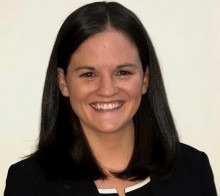Seed Grant Award: Race and Health Curriculum
Catherine McManus, Surgery

In the Department of Surgery at CUMC, our goal is to establish a curriculum to educate and increase awareness of issues involving race and health that affect our patients, trainees, and faculty. In our Race and Health Curriculum, we planed to utilize three existing educational platforms — Morbidity and Mortality, Grand Rounds, and daily noon conferences — to discuss racial injustice and to critically examine how racial injustice infiltrates the healthcare system. We aimed to use Grand Rounds time to introduce our department to experts in the field of race and health, increasing awareness of how health inequity impacts surgical care and the community in which we serve. In Morbidity and Mortality conference, our goal was to examine model cases that explore themes of race, racism, and health inequity as it pertains to patient care or patient care interactions. We planed to tailor the cultural curriculum to the issues that are pertinent at CUMC. Typically, 3-4 surgical complications are presented in each Mortality and Morbidity conference. We planed to integrate our program during these sessions by presenting 1-2 cases each month in place of a surgical complication case. We approached each case in the same manner as a surgical complication: presentation of the objective facts of the case or scenario followed by discussion of a teaching point from the case with pertinent supporting evidence. By integrating teachings of racial injustice into a structured framework that is familiar to surgical faculty and trainees, we will encourage participants and attendees to apply critical evaluation of their own actions using the same systematic, evidence-based manner used to approach surgical complications. This practice will not only demonstrate how to approach and discuss sensitive issues related to race and health but will also encourage a level of self-reflection and a recognition of one's own individual biases. Fundamentally, the practice of Morbidity and Mortality conference is to answer the question, “how can we improve?” We feel it is crucial that we apply this same principle to matters of race and health inequity.
Use of Morbidity and Mortality discussion time for cases other than strictly discussions of clinical care was a departure of well-established patterns. However, we modeled our curriculum after the Cultural Complications Curriculum developed by a General Surgery resident in the Department of Surgery at University of Maryland in collaboration with the Department of Surgery at the University of Michigan. The curriculum consists of twelve themes that range from foundational concepts to how race and diversity can affect advancement and professional development. We have already discussed our interest in implementing a similar curriculum in the Department of Surgery at CUMC with the developers at University of Michigan.
The Race & Health curriculum in our noon conference is an opportunity for trainees and faculty to come together more frequently and to engage on relevant topics with more depth. We met for an hour-long session every two weeks. We emailed the residents, students, and faculty about a specific topic for discussion along with the accompanying literature. We chose accessible media that helps keep our audience engaged but is not prohibitively long; we have previously selected short journal articles, podcasts, and videos with positive feedback. We then gathered a small group in a conference room and invited all other participants to join via Zoom. Previous topics include: how racism was a key building block in the development and structure of the healthcare system in the United States, contrasting experiences of a white male trainee and a black male trainee, and use of race in clinical scoring systems and algorithms. During these conferences we began by identifying an item of progress that has occurred in our community (for example the renaming of the medical student dorm at CUMC) and end with a list of action items and takeaway points for all participants to practice in order to encourage racial equality moving forward. By engaging trainees and faculty on the literature of this topic, we have been able to develop plans of action geared toward patient advocacy and instill a common goal of promoting structural and cultural change within our institution. We have established that having funding would greatly expand the access to resources for race and health education and would allow us to follow a more robust curriculum that could be sustained for years to come.
Instituting this unprecedented program would enable the Department of Surgery at CUMC to become a leader in the implementation of a formal, rigorous, evidence based curriculum on race and health. Developing competency around the issues of race and health is a vital aspect of clinical training and we planed to have CUMC at the forefront of instituting race and health as a core competency for all trainees.
This project was funded through the Addressing Racism: A Call to Action for Higher Education initiative of the Office of the Vice Provost for Faculty Advancement.